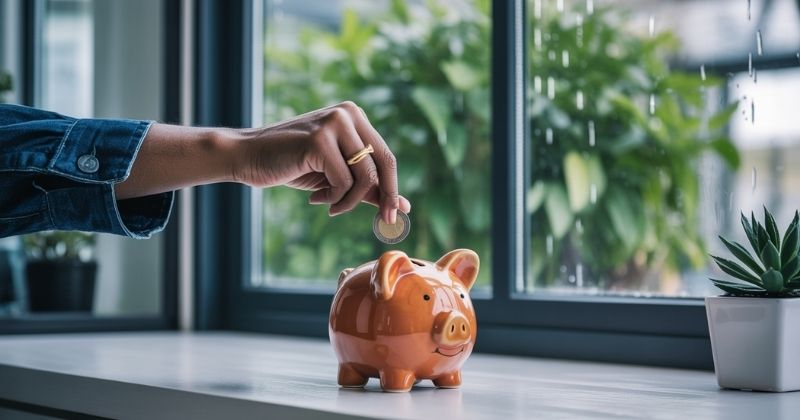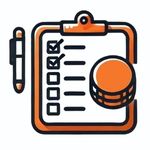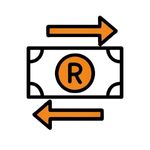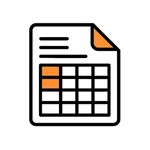
Building an emergency fund is one of the most reliable ways to improve personal financial security in South Africa. Many South Africans live month-to-month without any savings set aside for emergencies. This makes it difficult to manage unexpected costs such as medical expenses, vehicle repairs, or sudden job loss. Without a financial buffer, these situations often lead to debt or financial stress. Setting up an emergency fund gives you a reserve of cash that can be used when the unexpected happens.
Key Takeaways
- Purpose Of An Emergency Fund: An emergency fund helps cover unexpected costs such as medical bills, car repairs, or sudden loss of income. It prevents debt and helps you maintain your financial stability during difficult times.
- How Much To Save And How To Build It: Aim to set aside enough to cover at least three to six months of essential living expenses. Build the fund gradually by budgeting carefully, reducing unnecessary costs, and automating your savings.
- Where To Keep Your Emergency Fund: Keep the money in a separate account such as a high-interest savings account, money-market fund, or access bond. This ensures your funds stay safe, accessible, and earn interest over time.
About Arcadia Finance
Get your loan quickly and easily with Arcadia Finance. There are no application fees, and you can choose from 19 reputable lenders who fully comply with South Africa’s National Credit Regulator requirements. Enjoy a smooth process with trusted options designed to fit your financial needs.
What Is An Emergency Fund?
An emergency fund refers to a dedicated amount of money that you set aside to cover unexpected financial setbacks. Usually, this is kept in a separate savings account, away from your everyday bank account. This helps ensure that the money is not accidentally spent on non-urgent needs. The idea is to regularly contribute to this fund each month so that it gradually builds up over time. An emergency fund is intended to help cover unplanned expenses such as:
- Repairing a burst geyser
- Replacing worn or damaged car tyres
- Paying for a medical procedure that is not included in your medical aid
- Covering basic living expenses if you lose your job or are retrenched
Having an emergency fund can also assist with controlling debt. Without such a fund, many people are forced to rely on loans or credit cards when emergencies occur. While using credit may sometimes be unavoidable, having an emergency fund can help reduce how much debt you take on, making it easier to manage your financial obligations.
Another advantage is that an emergency fund helps keep your financial plans on track. Unexpected expenses can quickly throw off your budget. By having this financial cushion, you can handle emergencies without disrupting your ability to stick to your savings plans and long-term goals.
It is important not to confuse an emergency fund with a sinking fund. While an emergency fund covers unexpected crises like medical bills or job loss, a sinking fund prepares for predictable expenses such as school fees or car servicing.

Using Emergency Funds In South Africa
South African households often deal with very specific financial pressures. Many families rely on monthly wages with little margin for savings, especially in an economy marked by high unemployment and steadily increasing living expenses.
Recent studies show that many South Africans lack enough savings to manage even one full month of basic costs.
Having an emergency fund can offer much-needed protection against these financial risks. Whether the issue is an unexpected loss of income due to load-shedding, unforeseen medical bills, or a sudden retrenchment, having accessible savings can help to manage these difficult situations more smoothly.
Setting up an emergency fund is not simply good financial advice. It is a necessary step towards building greater financial stability and resilience.
How Much an Emergency Fund Should Be
How much should you aim to save in your emergency fund? A common guideline is to put aside enough to cover between three and six months of essential living costs. This amount should be enough to pay for necessities such as rent, groceries, utility bills, and other basic expenses if you were to lose your income or face an unexpected financial situation. If you are able to manage it, saving closer to six months of expenses will give you greater peace of mind.
The exact amount you should target will depend on your personal situation. For those with secure employment and few financial obligations, saving for three months of expenses may be sufficient. If you are self-employed, have an irregular income, or support a large family, it would be wise to aim for a larger fund, perhaps six to nine months’ worth of expenses. Review your income and monthly costs carefully, then set a savings goal that suits your circumstances. Doing this will give you greater confidence in handling whatever unexpected events the year may bring.

Steps To Build An Emergency Fund

Understand What An Emergency Fund Is For
An emergency fund is a separate savings account meant only for unexpected costs. This can include sudden medical expenses, urgent car repairs, or a loss of income due to unemployment. Keeping this type of fund helps you avoid falling into debt when unexpected bills arise. In South Africa, where many face unstable economic conditions, having a financial cushion can help reduce stress during difficult times.

Set A Savings Target That Works For You
Decide how much you would like to keep in your emergency fund. Many financial advisors suggest saving enough to cover at least three to six months of basic living costs. If this sounds like too much to start with, then set a smaller, more achievable target first, such as R5,000 or R10,000. Once you reach this, you can aim for higher amounts in stages.

Create A Budget To Understand Your Money Flow
Before you can start saving properly, you must understand where your money is going each month. By creating a simple budget, you can track your income and your spending. This helps you identify how much you can put aside regularly. Go through your expenses and spot areas where you can reduce costs, for example cutting back on eating out or cancelling unused subscriptions. The savings you make can then be channelled into your emergency fund.

Open A Separate Savings Account
To keep your emergency fund protected, it is best to open a separate savings account rather than keeping it in your day-to-day bank account. This helps prevent you from dipping into the fund unnecessarily. Choose a bank account that pays interest, so your money can grow slowly over time while remaining easily available if needed.

Set Up Automated Transfers
Automating your savings is one of the easiest ways to stay on track. Arrange for your bank to transfer a set amount from your cheque account to your emergency fund each month. By doing this automatically, you remove the risk of forgetting or delaying your contributions. You can start small and gradually increase the amount as your financial situation improves.

Reduce Spending Where Possible
Go through your regular monthly costs and see what you can reduce. This could mean cutting back on services such as DStv, Netflix, or Showmax, cancelling memberships you no longer use, or speaking to service providers about lowering your rates for insurance or other bills. The money saved can be redirected straight into your emergency fund.

Monitor Your Progress
Keep track of how your emergency fund is growing by checking the balance regularly. Reaching savings milestones such as R5,000 or R10,000 can help you stay motivated. Take time to celebrate these small wins, as they will encourage you to keep going.

Top Up The Fund After Using It
If you find yourself needing to use some of the money from your emergency fund, focus on replenishing it as soon as possible. Continue with your saving habits until you bring the fund back up to your goal amount. This way, the fund will always be ready when the next unexpected expense arises.
Building an emergency fund does not require large lump sums. It requires consistency. If you want practical and realistic strategies tailored to local living costs, explore proven tips on how to save money monthly in South Africa.

Where Should You Keep Your Emergency Fund In South Africa?
When building your emergency fund, the goal is to strike a balance between keeping your money safe, accessible, and earning a reasonable return. Here are the best options available in South Africa and what you need to know about each:
High‑Interest Savings or Goal Accounts
These accounts combine instant access with attractive interest rates. Examples include:
| Account | Interest Rate | Access | Notes |
|---|---|---|---|
| TymeBank GoalSave | ~6% to 10–11% (tiered rates) | Instant (with option to fix for 3, 6, or 12 months) | Multiple goals supported; can close and reopen accounts as needed |
| FNB Savings Account | Up to ~7.05% | Immediate | Based on deposits of R10,000 |
| African Bank 32-day Notice Account | ~8.5% | 32-day notice required | Withdrawal only after notice period |
Money‑Market or Call Accounts
These offer slightly higher rates than standard savings accounts and still allow access within a few days:
| Account | Interest Rate | Access | Notes |
|---|---|---|---|
| Standard Bank MoneyMarket Select | Approximately 7.9% per year | Immediate | Requires a minimum balance of R100,000; no admin fees |
| Allan Gray Money Market Fund (unit trust) | Varies, generally higher than deposit accounts | Within about 3 days | Focused on preserving capital while achieving better returns than typical savings accounts |
Fixed Deposits (With Notice)
These accounts typically offer higher interest rates but restrict immediate access:
| Account | Interest Rate | Access | Notes |
|---|---|---|---|
| African Bank Fixed Deposits | Approximately 8% to 10%+ (term-based) | Locked for the agreed period | Higher rates with longer terms |
| RSA Retail Savings Bonds | Competitive, generally higher than standard accounts | Locked for at least 12 months | Low risk; early withdrawals before 12 months may incur penalties |
Home‑Loan Access Bonds
Some banks allow you to deposit surplus money into your home loan account, effectively creating a savings buffer at home loan interest rates. If your bond is an access bond, you can withdraw these extra funds when needed. This method can be a clever way to use existing debt structures to hold an emergency buffer.
Conclusion
Building an emergency fund is one of the most practical steps you can take to improve your financial security in South Africa. By setting aside money specifically for unexpected costs, you reduce the risk of falling into debt when emergencies arise. Whether you start small or aim for several months’ worth of savings, having an emergency fund can provide peace of mind and help you stay in control of your finances. The key is to build the fund steadily, keep it separate from daily spending, and use it only for genuine emergencies.
Frequently Asked Questions
It is generally recommended to save enough to cover three to six months of essential living costs. The exact amount depends on your personal situation, such as your job security, income stability, and number of dependants.
You should keep your emergency fund in a separate savings account that offers good interest and allows quick access. High-interest savings accounts, money-market accounts, or an access bond are good options in South Africa.
This depends on your budget and income. Many people start with small amounts and build up over time. It can take several months or even a few years to reach your full target, and that is perfectly normal.
It is best to keep your emergency fund for genuine emergencies, not for repaying long-term debt. If you use the fund for debt payments, you may not have money available for unexpected expenses when they arise.
No, your emergency fund should be kept in low-risk, easily accessible accounts. Investments like shares or property can lose value and may not be accessible when you need the money urgently.
Fast, uncomplicated, and trustworthy loan comparisons
At Arcadia Finance, you can compare loan offers from multiple lenders with no obligation and free of charge. Get a clear overview of your options and choose the best deal for you.
Fill out our form today to easily compare interest rates from 19 banks and find the right loan for you.


